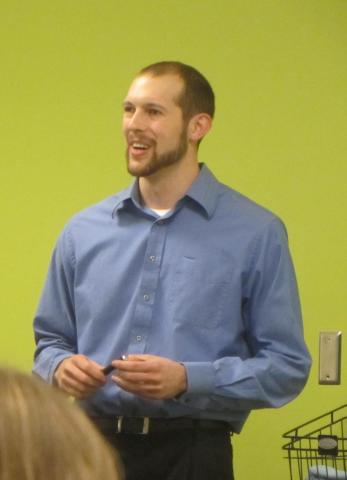Member for
4 yearsI received my BS in Mechanical Engineering from Bradley University in May 2013. My undergraduate research focused on biosensing using Microelectromechanical Systems (MEMS). I also published my work investigating protein adsorption onto self-assembled monolayers (SAMs). I am currently a graduate student pursuing a PhD in Bioengineering at Georgia Tech. I have become attracted to the interdisciplinary nature of the bioengineering because I enjoy applying fundamental science and engineering concepts to all research disciplines. The Bioengineering program at Georgia Tech allows me to pursue these exciting collaborations. My goal as a graduate student is to become an expert in micro/nanotechnology and advance my ability to independently learn, thoroughly investigate the unknown, and effectively disseminate new knowledge. Research is imperative to the success and sustainability of our future, which is why I am working with middle school students who are our future scientists and engineers. As someone with ADHD, I am particularly focused on mentoring students with learning differences through the Georgia Tech chapter of Eye to Eye. I have also been trained as a public speaker in the Eye to Eye Diplomats program to change the perspective of learning disabilities and ADHD through a broader audience. My long-term aim is to advance knowledge in the scientific community and improve the quality of the next generation of researchers.
The interface between electrical and biological systems mediates the interaction of the human body with modern technology. Biomedical applications include neural probes, bionic implants, and regenerative medicine. The standard materials currently used for these applications are metals and metal oxides. However, due to their high stiffness, metallic materials are often rejected by the body and consequently lack long-term electrical stability. My research, in the Payne Lab in the School of Chemistry and Biochemistry, investigates the use of conductive polymer nanowires as an alternative interfacial material to electrically interact with single cells. Conductive polymers have excellent potential to mediate bioelectrical communication due to their high conductivity, mechanical flexibility, and biocompatibility. It is hypothesized that these polymer nanowires can improve biocompatibility, signal-to-noise ratio, and interfacial intimacy for external electrical stimulation and recording of individual mammalian cells. In collaboration with Prof. Craig Forest in the Petit Institute for Bioengineering and Bioscience, we will also begin to look at in vivo performance of nanowire-facilitated neural stimulation.

